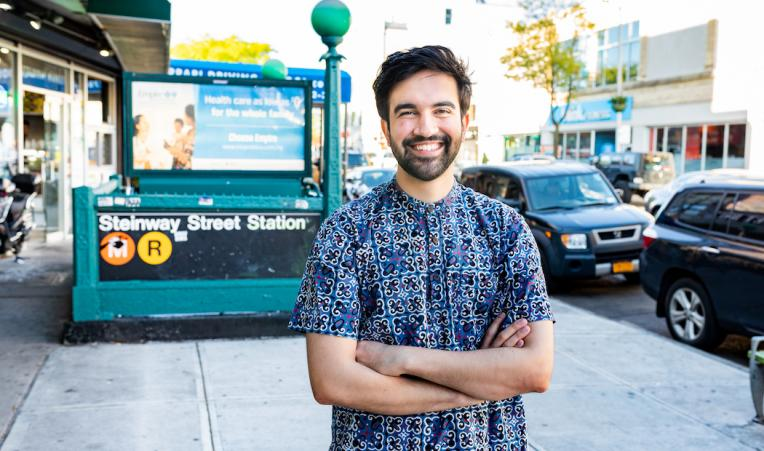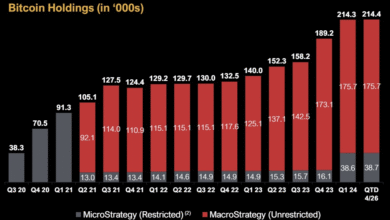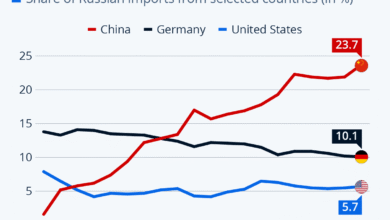Mamdani NYC Victory Leaves Wall Street Alarmed and Depressed

Mamdani NYC Victory marks a significant turning point in the New York City mayoral race, igniting a wave of concern among Wall Street elites. Following Zohran Mamdani’s stunning primary win, high-profile investors are expressing alarm over the potential implications for tax policies and regulations that could adversely affect their interests. Mamdani, an outspoken advocate for wealth redistribution, aims to implement measures like higher taxes on the ultra-wealthy and a state-level wealth tax. Investors fleeing NYC are a growing trend as fears mount about the impact of a socialist agenda on the Big Apple’s once-thriving business environment. As the general election approaches, Wall Street reactions will likely continue to shape the narrative surrounding Mamdani’s candidacy and its potential consequences for the financial landscape of New York.
The recent triumph of Mamdani in the primary for New York City mayor has set the stage for a major political shift that has investors’ heads spinning. As the democratic socialist prepares for the general elections, concerns around his proposed economic policies, particularly regarding taxation and regulation, echo across financial sectors. The ripple effect of Mamdani’s victory could exacerbate the trend of affluent individuals and corporations exiting New York, seeking more favorable financial climates elsewhere. Investors’ apprehensions are heightened by the prospect of increased fiscal burdens and limited growth opportunities, reminiscent of reactions observed in prior mayoral elections with progressive candidates. The implications of these developments on both local governance and Wall Street’s sentiment are crucial as businesses brace for potential changes ahead.
Understanding Mamdani’s Tax Policies
Zohran Mamdani’s tax policies have become a focal point for concern among Wall Street investors following his primary victory in the New York City mayoral race. His proposal to implement a wealth tax, alongside raising marginal income taxes for high earners, signals a stark shift away from the low-tax climate that many wealthy individuals and corporations favor. Analysts warn that such tax hikes could deter not just current residents but also potential investors from looking at New York as a viable option for business and financial opportunities. As Mamdani champions policies geared towards wealth redistribution, it raises alarms for those who see high taxes as a disincentive for investment.
Furthermore, Mamdani’s advocacy for taxing financial transactions adds another layer of anxiety for Wall Street. This is especially pertinent in an era where investors are already fleeing high-tax environments for more favorable conditions in states like Florida and Texas. Mamdani’s election could heighten these concerns as companies and individuals weigh the long-term economic landscape of New York City. If his proposals come to fruition, it could catalyze further exodus from an already beleaguered market, leading to a significant decline in the city’s revenue base that funds public services.
Wall Street’s Alarming Reaction to Mamdani’s Victory
The reaction from Wall Street insiders to Zohran Mamdani’s primary win has been nothing short of alarmist. Prominent figures in finance, from hedge fund magnates to seasoned investors, are expressing deep concerns over the implications of his leadership style and policies. Many are worried that Mamdani’s progressive agenda, which runs counter to their capitalist ideals, could lead to tighter regulations and a business climate that is less conducive to growth. Philippe Laffont, founder of Coatue Management, commented on the potential for wealthy investors to leave the city entirely if Mamdani’s policies are enacted, reaffirming fears that his victory marks a definitive shift toward an era of increased economic uncertainty in NYC.
Moreover, the immediate impact on the stock market has been visible, with certain sectors, particularly real estate and banking, already showing signs of distress since Mamdani’s win became apparent. Share prices at regional banks like Flagstar and major realty firms have taken a noticeable hit, reflecting investors’ fears of stringent regulation and tax repercussions. As capital and talent flow toward lower-tax states, Wall Street’s unease underscores the potential for a significant economic pullback in one of the nation’s primary financial hubs, casting a shadow over Mamdani’s celebratory moment.
The Impact of Mamdani’s Policies on NYC Real Estate
Mamdani’s comprehensive policies on universal rent control stand to reshape the landscape of New York City’s real estate market dramatically. With proposals to exert tighter regulations on rent-stabilized apartments, he positions himself against the interests of property owners and real estate investors who rely on more lenient rules to maintain profitability. The prospect of a pause on rent increases would directly affect tenant-landlord dynamics, presenting challenges for landlords managing rent-stabilized properties while potentially reducing the appeal of investing in NYC’s real estate market for future investors.
The anxiety surrounding Mamdani’s approach to housing policy is not unfounded; recent historical trends illustrate how such reforms can dampen new construction and investment in housing development. As regulations tighten, there could be a decrease in the number of new housing projects, exacerbating shortages in affordable housing while simultaneously disincentivizing property investment. Investors may view the overall risk of the market as rapidly increasing with Mamdani’s ascent, leading them to consider reallocating their portfolios away from New York City.
Community Concerns Surrounding Mamdani’s Leadership
Mamdani’s victory has ignited widespread discussions about the implications for everyday New Yorkers. While his supporters herald his socialist policies as necessary steps towards equity, many residents express concerns about how these changes may manifest in their daily lives. The sentiments highlighted by Kathryn Wylde, president of the Partnership for New York City, reflect a growing fear among constituents regarding the potential financial instability that could surface under Mamdani’s administration. Her assertion that voters could swiftly lose confidence in the new leadership emphasizes the urgency for Mamdani to communicate effectively with the public.
Residents are particularly apprehensive about the city’s ability to navigate financial challenges while implementing transformative policies. As the cost of living continues to rise, the prospect of higher taxes, coupled with a shift in governance, leaves many questioning their faith in the economic resilience of New York City. Therefore, it becomes critical for Mamdani to establish measures that not only promote his progressive agenda but also ensure the stability and growth of the city’s economy, especially for ordinary citizens who may not benefit directly from wealth redistribution policies.
The Future of NYC Under Mamdani’s Vision
The outcome of Zohran Mamdani’s primary win is poised to alter the course of New York City politics significantly. With a focus on economic policies that challenge the status quo, Mamdani’s leadership promises to bring bold changes that may redefine the interplay between social justice and financial viability. His commitment to progressive taxation and investor regulation could set New York City on a new trajectory, potentially aligning the administration more with the interests of the working class rather than the affluent elite.
However, as history suggests with previous mayors who implemented sweeping reforms, public opinion can be fickle, particularly in response to economic downturns. The challenges ahead will require Mamdani to balance ambitious policy goals with retaining investor confidence and boosting economic engagement among New Yorkers. If he successfully navigates these complexities, there exists the potential for NYC to emerge as a model for how progressive ideologies can coexist with a thriving economy, challenging conventional perspectives on urban governance.
Investors Fleeing NYC: Trends and Implications
Since the onset of the pandemic, New York City has witnessed a notable trend of wealthy individuals and corporations relocating to states with more favorable tax structures. This migration has raised serious questions about the financial sustainability of New York City amid rising living costs, exacerbated by the potential implementation of Mamdani’s tax policies should he win the general election. The cumulative effect of these outflows could contribute to a diminished tax base, which may hinder the city’s economic recovery and capacity to fund essential services.
The reactions from investors and business leaders indicate that a Mamdani victory might accelerate this trend, as the Wall Street elite already express dissatisfaction with the prospect of heightened regulations and tax burdens. With powerful players like Bill Ackman openly contemplating future alternatives, the fear of widespread capital flight is palpable. If Mamdani’s policies fail to attract or retain high-net-worth individuals and enterprises, New York City’s long-standing reputation as a financial hub may find itself under threat, prompting a need for immediate engagement from the city’s leadership to mitigate such challenges.
Reactions from New York City’s Financial Elite
Zohran Mamdani’s electoral victory has evoked strong reactions from New York City’s financial elite, who traditionally wield significant influence over economic policy and city governance. Business leaders such as Lawrence Summers have publicly highlighted their concerns about Mamdani’s potential impact on both national and local economic strategies. The alarm voiced by prominent figures serves not just to express personal discontent but also reflects a broader anxiety within the investment community over the potential for radical shifts in economic policy that could destabilize the financial landscape they have long operated within.
Such sentiments cannot be dismissed lightly, as they often dictate the flow of capital into urban economies. As investors reassess their commitment to New York City post-election, the implications could lead to shifts in the marketplace, potentially favoring regions with more business-friendly policies. The challenge for Mamdani will be to advocate for his progressive agenda while simultaneously convincing the financial class that innovation and investment can thrive under his leadership. Fostering dialogue with these stakeholders will be essential to revitalizing confidence in the city and delineating a clear vision for economic progress.
The Importance of Investor Sentiment in NYC
Investor sentiment plays a crucial role in shaping the economic landscape of New York City, particularly in light of Mamdani’s potential policies that stand in stark contrast to Wall Street’s expectations. Understanding the psyche of investors is key, as a negative outlook can swiftly lead to capital flight and dwindling business confidence. As Mamdani advocates for an economic model that prioritizes wealth redistribution, it is vital for him to find equilibrium with Wall Street to prevent a financial exodus that could exacerbate the challenges facing the city.
Historically, mayors have had to navigate the tricky waters of investor relations to ensure the city remains a viable option for business operations. As Mamdani gears up for the general election, establishing strategic alliances with influential stakeholders will be essential. It is through these engagements that he can reassure current and prospective investors that his progressive policies are aimed not merely at penalizing success but at fostering an economy that benefits all New Yorkers. In doing so, he may mitigate the fears that are currently leading to significant anxiety within the financial sector.
The Path Forward for NYC’s Economic Landscape
The path forward for New York City’s economic landscape under Zohran Mamdani will require considerable navigation of existing challenges, particularly amidst Wall Street’s apprehensions about his proposed fiscal policies. As Mamdani pushes for systemic change through socialism and wealth redistribution, the city’s economic future largely hinges on how these policies are perceived and enacted in practice. The collaborative efforts between the administration and business leaders will thus dictate the degrees to which economic stability can be maintained during this transformative period.
Addressing the needs and concerns of various stakeholders will be paramount; Mamdani must prioritize communication with all sectors, ensuring that fears of tax hikes and regulatory burdens do not overshadow the broader vision of social equity. By balancing ambitious reforms with practical economic considerations, Mamdani could potentially forge a new economic model that retains both the spirit of progressivism and the necessary pragmatism to keep New York City thriving amidst significant change.
Frequently Asked Questions
How has Zohran Mamdani’s NYC victory affected Wall Street?
Zohran Mamdani’s NYC victory has caused alarm among Wall Street investors, leading to concerns about potential tax hikes and increased regulation. Financial leaders fear that Mamdani’s socialist policies could drive wealthy investors out of New York City.
What are Mamdani’s proposed tax policies following his primary victory in the New York City mayor race?
Following his primary victory, Mamdani has proposed significant tax policies including taxing the ultra-wealthy, implementing a wealth tax, and increasing marginal income tax rates for high earners. These policies run counter to Wall Street’s preference for lower taxes and deregulation.
What is the reaction of high-profile investors to Mamdani’s nomination for NYC mayor?
High-profile investors have reacted negatively to Mamdani’s nomination. Philippe Laffont and Bill Ackman expressed feelings of depression and alarm, fearing a potential exodus of investors from NYC due to Mamdani’s proposed policies.
What implications does Mamdani’s victory have for investors fleeing NYC?
Investors are concerned that Mamdani’s victory and proposed tax policies could exacerbate the trend of wealthy individuals and firms fleeing NYC for low-tax states like Florida and Texas, as they anticipate unfavorable conditions for business and investment.
How might Mamdani impact rent control policies in New York City?
Mamdani advocates for universal rent control, which could halt rent increases and significantly affect profits for multi-family rental properties. This move raises concerns within the business community regarding the management of real estate in NYC.
What are the fears expressed by business leaders regarding Mamdani’s economic policies?
Business leaders fear that Mamdani’s emphasis on taxpayer-funded spending and regulation could undermine economic growth in NYC, potentially creating a ‘disaster’ scenario if confidence in municipal leadership deteriorates.
Could Mamdani’s NYC victory lead to the reelection of Andrew Cuomo as an independent candidate?
While Mamdani’s victory has surprised many, there is speculation about the possibility of former Governor Andrew Cuomo re-entering the race as an independent candidate, although this remains uncertain depending on the dynamics leading up to the November election.
What historical comparisons are being made regarding Mamdani’s impact on New York City?
Mamdani’s victory has drawn parallels to Bill de Blasio’s election in 2013, which similarly caused anxiety among the financial elite. However, de Blasio was able to mitigate fears by engaging with business leaders to discuss his reforms.
| Key Point | Details |
|---|---|
| Mamdani’s Win Reaction | Wall Street investors are alarmed and concerned about the implications of Mamdani’s win, with high-profile figures expressing their discontent. |
| Economic Concerns | Mamdani’s policies are expected to include tax increases and tighter regulations, particularly targeting the ultra-wealthy and big financial institutions. |
| Investor Exodus | Some investors may leave NYC for states with lower taxes, continuing a trend that began during the pandemic. |
| Effects on Stock Market | Stocks related to New York’s real estate market have already seen declines, with shares of Flagstar and SL Green Realty notably affected. |
| Mamdani’s Policies on Housing | He supports universal rent control, which could negatively impact rental property profits and further upset landlords. |
| Civic Sentiment | Local business leaders express a mix of fear and optimism, indicating a need for balanced governance to maintain confidence in NYC. |
| Past Comparisons | The election of Mamdani is compared to that of Bill de Blasio’s, with hopes for reconciliation with the business community. |
Summary
Mamdani NYC Victory has left Wall Street both alarmed and depressed as high-profile investors react negatively to the potential for drastic tax reforms and increased regulations. This shift represents a significant cultural and economic pivot for New York City, which could affect investor confidence and lead to a broader exodus of wealthy individuals. Mamdani’s socialist policies contrast sharply with Wall Street’s favor for capitalism and low taxes, triggering fears about the future economic landscape of the city.




